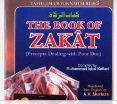Islamic Months
Home > Islamic Months
Islamic Months
MONTH OF RAJAB

Prophet Mohammad (pbuh) used to welcome this month by saying:
اللّهمّ بارك لنا في رجب و شعبان وبلّغنا رمضان
Allhumma barik lana fi Rajab wa Sha’ban wa ballighna Ramadan
“O Allah, make the months of Rajab and Sha’ban blessed for us, and let us reach the month of Ramadan.
Rajab (Arabic: رَجَب) is the seventh month of the Islamic calendar. The lexical definition of the classical Arabic verb rajaba is “to respect” which could also mean “be awe or be in fear”, of which Rajab is a derivative.
This month is regarded as one of the four sacred months (including Muharram, Dhu al-Qadah and Dhu al-Hijjah) in Islam in which battles are prohibited. The pre-Islamic Arabs also considered warfare blasphemous during the four months.
Muslims believe Rajab is the month in which ‘Alī ibn Abī Tālib fourth Caliph of Sunni Muslims, was born.
Rajab is also the month during which Isra’ Mi’raj (journey from Mecca to Jerusalem and then through the 7 Heavens to meet Allah) of the Islamic prophet, Muhammad, took place.
Rajab and Shaʿbān are a prelude to the holy month of Ramaḍān.
The word “Rajab” came from “rajūb (رجوب)”, the sense of veneration or glorification, and Rajab was also formerly called “Mudhar” because the tribe of Mudhar did not change it but rather expected in its time other than the rest of the Arabs, who changed and altered in the months according to the state of war.
The name of Rajab literally means respected, regarded, and admired. Also, during Rajab, war is forbidden. There are other names for the month, such as Rajab Al-Morrajjab, Rajab Al-Asab and Rajab Sharif.Click here to read more
************************************************************************************************************************************************
MONTH OF SHABAAN 
Shaʽban (Arabic: شَعْبَان, Šaʿbān) is the eighth month of the Islamic calendar. It is the month of “separation”, so called because the pagan Arabs used to disperse in search of water.
Why is this month named Sha’ban?
It is said that historically “the people” (sha‘b in Arabic) used to ‘scatter’ or ‘disperse’ (tasha‘aba) in this month in search of water or provision. It may also be that this month ‘branches’ out, or ‘extends’ (sha‘aba) to bridge two significant months in the calendar, from the sacred month of Rajab to the month of Divine Revelation, Ramadan. When referring to multiple months of Sha‘ban, one says Sha‘banat or Sha‘abin.
The fifteenth night of this month is known as the “Night of Records” (Laylat al-Bara’at).
Sha’ban is the last lunar month before Ramadan, and so Muslims determine in it when the first day of Ramadan fasting will be. Read more
**************************************************************************************************************************************************************
MONTH OF RAMADAN
Ramadan is a month of fasting, reflection, devotion, generosity and sacrifice observed by Muslims around the world. Over the centuries Ramadan has retained its passionate spiritual meaning. The word “Ramadan” comes from the Arabic word for “Parched Thirst” and “Sun-Baked Ground.” It is meaningful of the hunger and thirst felt by those who spend the month in fasting and get benefits of fasting in the month of Ramadan. Ramadan is by nature a time of sacrifice.
Each year Muslims spend the ninth month of the Islamic calendar observing a community wide fast. The fast of the month of Ramadan considered one of the five pillars of Islam. Muslims who are physically able to required to fast each day of the entire month from sunrise to sunset. The month of Ramadan lasts 29 to 30 days depending on moon sighting and according to narration. Read more

Need to know more on the FIQH of fasting (the dos and don’t) for the Month of Ramadan. CLICK HERE

The Book of Zakaat (precepts Dealing with Poor Dues)….by Muhammad Iqbal Kailani Click here

The Fiqh Al Zakat: A Comparative study of Zakat,Regulation and Philosophy in the light of Quran and Sunnah (Vol 1). Click here
